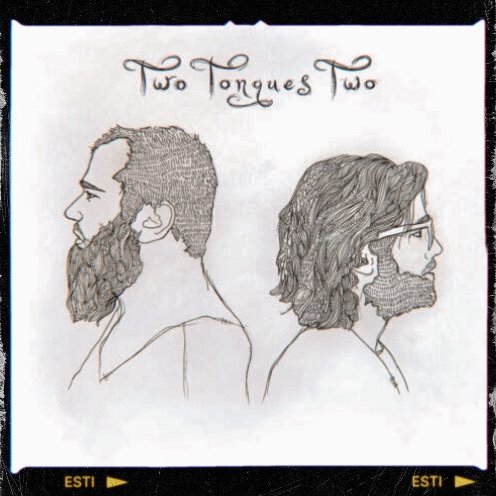Two Tongues, One Truth: The Beautiful Imperfection of Max Bemis and Chris ConLEy’s Side Project
When Say Anything’s Max Bemis and Saves the Day’s Chris Conley joined forces to create Two Tongues, it wasn’t just a collaboration—it was an excavation. Their 2009 self-titled album is a raw, untamed conversation between two of the most emotionally unfiltered voices in emo and punk rock. It’s a record that feels like opening a diary, one where the pages bleed not just with words but with identity, longing, and fractured ego. To truly understand Two Tongues, you have to understand what brought these two visionaries together, why their pairing was inevitable, and how this project became more than the sum of its parts.
The Genesis of Two Tongues
The roots of Two Tongues are steeped in mutual admiration. Saves the Day and Say Anything were two bands that redefined what it meant to be vulnerable in music. Max Bemis often credited Chris Conley and Saves the Day’s groundbreaking 2001 album Stay What You Are as a personal and artistic revelation. To Max, Chris was a mentor—a figure whose voice and songwriting shaped Say Anything’s DNA.
On the other hand, Chris Conley saw in Max a younger counterpart, someone willing to take bold creative risks and expose himself unapologetically through his music. This reciprocal admiration made their collaboration organic. But it wasn’t just admiration that fueled Two Tongues. It was the opportunity to explore something deeper—how their voices, styles, and emotional landscapes could collide to tell stories they couldn’t tell alone.
The band name itself is telling. Two Tongues suggests duality: two voices, two perspectives, but also the inner conflict of grappling with love, identity, and creativity.
The Sound: A Collision of Worlds
The Two Tongues album is an amalgamation of Say Anything’s theatrical bombast and Saves the Day’s melodic sensitivity. The opening track, Crawl, sets the tone with its gritty guitar riffs and pleading vocal delivery. Max’s angst-driven yells clash beautifully with Chris’s softer, almost ethereal tones. It’s a song that feels like both artists are staring into the same abyss, but their reactions to it are entirely different.
Wowee Zowee bursts with an almost manic energy, where the playfulness of Say Anything meets the surreal storytelling of Saves the Day. The contrast between Max’s biting sarcasm and Chris’s earnestness creates a fascinating tension that runs throughout the album. The hooks are infectious, but they’re often at odds with the weight of the lyrics, which explore themes like unrequited love, creative frustration, and self-loathing.
And then there’s Tremors. This haunting ballad strips away the bravado and theatricality, leaving raw emotion in its place. It’s one of the album’s most vulnerable moments, with Chris and Max trading verses like confessions, their voices blending and clashing in ways that feel both intimate and confrontational.
The Concept: Love, Hate, and Duality
At its core, Two Tongues is about relationships—not just romantic ones, but the relationship between ego and insecurity, love and resentment, art and self-doubt. The album plays like a dialogue, where Max and Chris are constantly grappling with each other’s perspectives and, perhaps, their own.
Max has always been unflinchingly honest about his struggles with mental health, and his lyrics reflect that vulnerability. Songs like If I Could Make You Do Things and Dead Lizard feel like fragmented thoughts from someone trying to reconcile the pain of loving too deeply and losing himself in the process. Chris, on the other hand, brings a more reflective, poetic quality to tracks like Interlude and Don’t You Want to Come Home. Where Max’s lyrics scream and bleed, Chris’s linger like a bittersweet memory.
Together, they create an emotional push-and-pull that mirrors the way people experience connection: the desire to merge with someone else while desperately holding on to your own sense of self.
The Legacy of Two Tongues
When Two Tongues was released in 2009, it didn’t land with the impact one might expect from two giants of the emo and indie rock world. It was praised for its ambition but criticized for its lack of cohesion. For some fans, it was too much of a departure from the artists’ main projects; for others, it was a raw and fascinating glimpse into their creative minds.
But the album wasn’t meant to be easy or polished. It was a snapshot of two artists at a crossroads, grappling with their identities and relationships in real-time. It’s a record that’s grown in stature over the years, finding a cult following among fans who see it as a hidden gem—a messy, beautiful experiment that captured lightning in a bottle.
In 2016, Two Tongues II was released, an album that felt more restrained and introspective, reflecting how both Max and Chris had evolved as artists and individuals. While it didn’t have the same unhinged energy as their debut, it offered a more mature exploration of the themes they had touched on years before.
Why It Matters
Two Tongues is more than just a side project. It’s a reflection of what happens when two artists, unafraid of their own imperfections, come together to create something raw and unapologetic. It’s about the beauty of collaboration, the vulnerability of putting your emotions on display, and the messiness of being human.
Listening to Two Tongues feels like sitting in on a conversation between two friends who are trying to figure out life, love, and everything in between. It’s uncomfortable at times, but it’s also cathartic. It’s a reminder that music doesn’t have to be perfect to be profound—it just has to be honest.
For Max Bemis and Chris Conley, Two Tongues wasn’t just an album. It was a way to speak their truths, not just to their fans, but to themselves. And for anyone willing to dive into its depths, it offers the chance to do the same.




